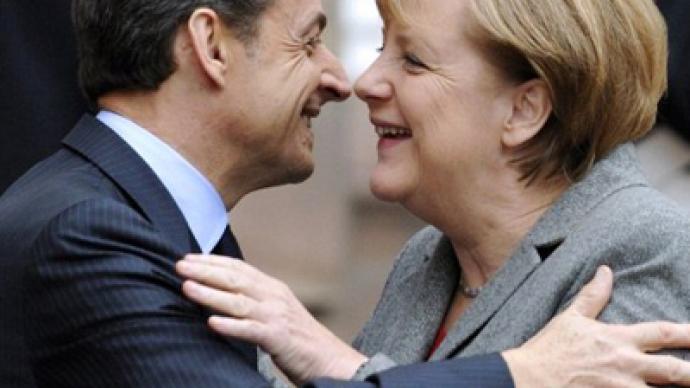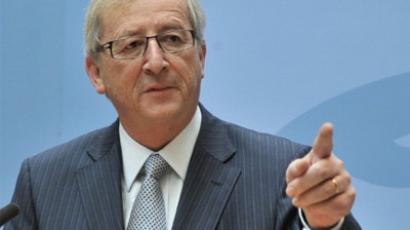Rethinking and overhauling Europe

There is no easy fix to the Euro zone's debt crisis and solving the problem will take years. The French and German leaders believe a new treaty may be the answer, and will strengthen the union.
German Chancellor Angela Merkel sees the only way out is to create “a fiscal union with strict rules” to solve the fundamental problems of “Europe's widening financial crisis.” Though she said the process will take years. Nicolas Sarkozy warns about the possible breakup of European Union and its integrity if the existing union is based only on fiscal relations. “We need to push for fundamental changes to the European treaty governing the currency shared by 17 nations. It is crucial for convergence.” He added that in the current conditions “ the Euro will always remain too strong for one economy and too weak for other, thus the Euro zone will not be able to exist anymore”. The Maastricht Treaty, signed in 1992, states European Community members must keep their budget deficits at no more than 3% of GDP and the level of debt – no more than 60% of GDP. According to RBC daily, in 2010 only Denmark, Luxembourg, Bulgaria, Finland, Sweden, and Estonia met both Maastricht criteria.President of Sberbank, German Gref has pointed out he thinks the European Union has two ways to remedy the current financial and economic situation; they are – either to seek closer integration or, to default. Closer integration means "the formation of, say, a kind of United States of Europe” Gref said. "But it will need a long time to reach the target,” he added. The other option, the disintegration of the euro, which means some of its member countries will go back to their former currencies “is fraught with disintegration of the entire European Union”. Although this scenario gives more options to get over the crisis, “This is a much more honest policy that gives hope for regaining competitive abilities of peripheral countries and their re-entry to the currency orbit of the European Union.” Gref added.














